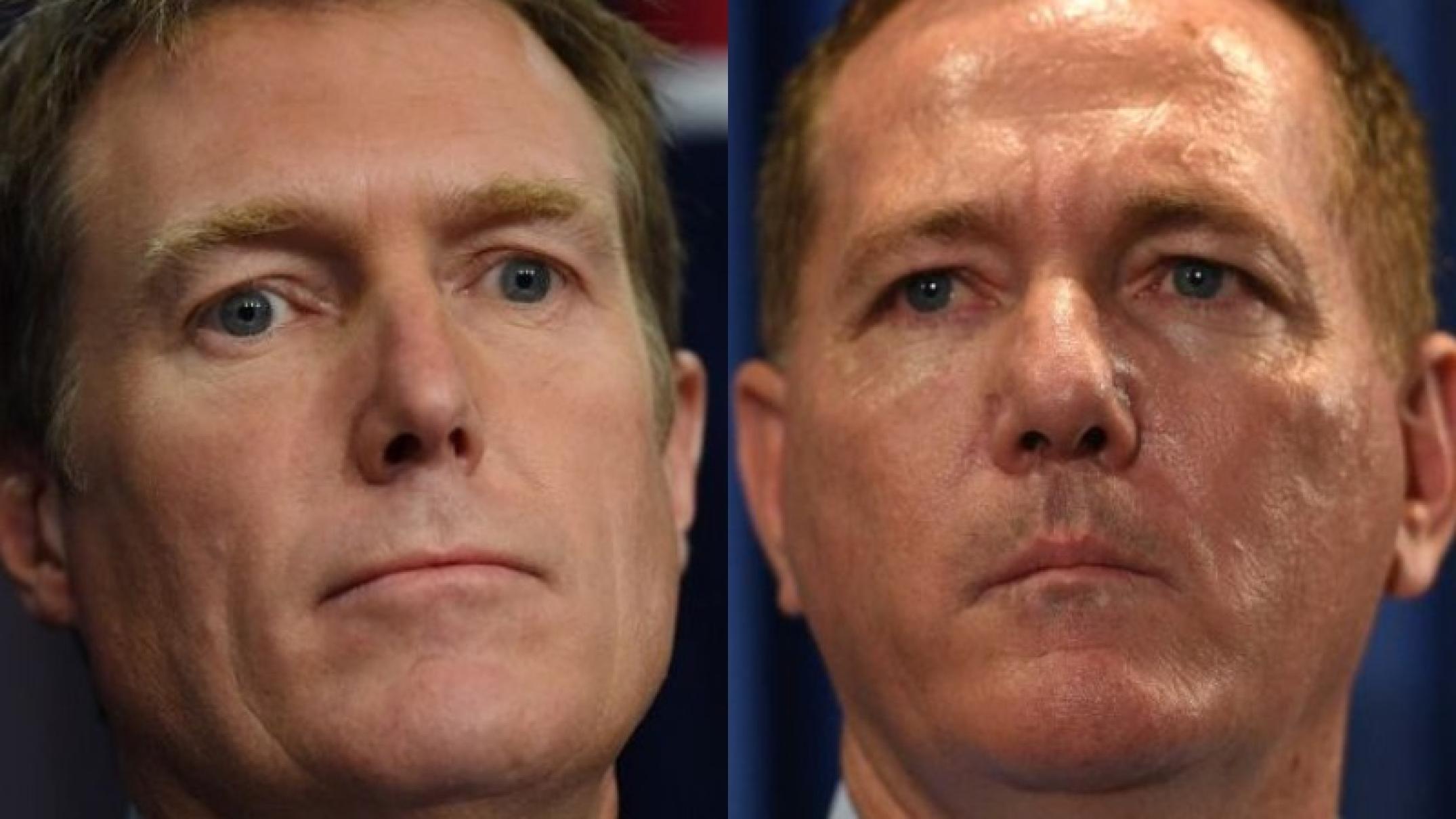NSW Police Commissioner Mick Fuller held a “high level” discussion with his deputy about the historical rape allegation against Christian Porter before the complainant took her own life.
Key points:
- Commissioner Fuller said he did not contact anyone in NSW or federal politics about the allegations
- He said police wanted to take a statement from the complainant in person
- Mr Porter denies the allegations
Speaking at a budget estimates hearing in NSW Parliament, Commissioner Fuller said the allegation, and subsequent investigation, was not discussed outside of the NSW Police.
“I made no contact personally with anyone outside of the organisation in relation to it,” Commissioner Fuller told the hearing.
“I had a high-level discussion about it with Deputy Commissioner David Hudson but at that stage the lady was unsure in terms of what action she wanted.”
The hearing was told the South Australian woman spoke to specialist detectives at Kings Cross Police Station in February 2020 and alleged she had been raped by Mr Porter in 1988 when she was 16.
Mr Porter has strenuously denied the allegation, saying it did not happen.
NSW Opposition MP Rose Jackson grilled Commissioner Fuller about the “sensitive political” nature of the allegation, and asked whether Mr Fuller or anyone else had informed NSW Police Minister David Elliott of the investigation.
“So you and to the best of your knowledge the Deputy Commissioners and others made no contact with anyone in NSW or federal parliament in relation to the case at that time?” Ms Jackson asked.
“Absolutely from my perspective 100 per cent zero contact,” Mr Fuller replied.
“And I did not instruct anyone to make any contact with anyone in NSW or Australian politics.”
Mr Fuller told the hearing the alleged victim had indicated she was not ready to make a formal statement when she first approached NSW Police in February.
He said detectives had planned to travel to Adelaide in March or April to take a formal statement from the woman but had to postpone the trip due to the coronavirus pandemic.
He told the hearing that it was preferable to take a formal statement from the woman in person, rather than by phone or video-link.
“A historic sexual assault statement is one that is extremely complicated,” Mr Fuller said.
“It is not something that you would do justice taking it over the phone and there are still the challenges in putting it in a statement admissible form and sending that and having it signed.
“They are complex investigations and you really need to ensure that the alleged victim’s statement is at its strongest to stand the test of possible scrutiny.”
The woman took her own life in June, the day after she told detectives that she did not wish to proceed with a formal statement or investigation.
Mr Fuller said a decision was then made to close the investigation.
“Our current practice in these matters is to respect the victim’s wishes,” he said.
“They are very complex matters to prosecute when you have the victim and additional evidence.
“Now it’s not impossible to run a matter without a victim but in reality it wouldn’t happen, you just wouldn’t be able to run an historic sexual assault without a victim and a signed statement.”
The parliamentary hearing continues.




